|
Books Should Be Free Loyal Books Free Public Domain Audiobooks & eBook Downloads |
|
|
Books Should Be Free Loyal Books Free Public Domain Audiobooks & eBook Downloads |
|
Plays |
|---|
|
Book type:
Sort by:
View by:
|
By: Richard Harding Davis (1864-1916) | |
|---|---|
 Miss Civilization
Miss Civilization
Miss Civilization, a one act comedy, tells the story of a young woman who matches wits with three burglars attempting to rob her house. | |
By: Richard Steele (1672-1729) | |
|---|---|
 Funeral: or Grief A-La-Mode
Funeral: or Grief A-La-Mode
The Funeral: or, Grief à-la-Mode, a Comedy, was written in the summer of 1701, and given to Christopher Rich, of the Theatre Royal, Drury Lane, in October. Soon afterwards it was acted, and it was published by Jacob Tonson between December 18 and 20, with the date 1702 on the title-page. The music to the songs, by William Croft, appeared between December 16 and 18. [] The play was revived occasionally in most of the years between 1703 and 1734, and from time to time during the following half-century, the last date, apparently, being April 17, 1799... | |
By: Robert Browning (1812-1889) | |
|---|---|
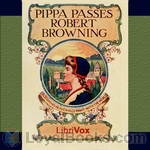 Pippa Passes
Pippa Passes
Pippa Passes was a dramatic piece, as much play as poetry, by Robert Browning published in 1841 as the first volume of his Bells and Pomegranates series. The author described the work as the first of a series of dramatic pieces. His original idea was of a young, innocent girl, moving unblemished through the crime-ridden neighbourhoods of Asolo. The work caused outrage when it was first published, due to the matter-of-fact portrayals of many of the area’s more disreputable characters – notably the adulterous Ottima – and for its frankness on sexual matters... | |
By: Robert Dodsley (1703-1764) | |
|---|---|
 Cleone. A Tragedy
Cleone. A Tragedy
This is a play in 5 acts. From the playwright's preface: "An imperfect hint towards the Fable of the following Tragedy was taken from the Legend of St. Genevieve written originally in French, and translated into English about an hundred years ago by Sir William Lower." It tells a story of jealousy and deceit turning friend against friend to acquire wealth and love. - Summary by Joshua Seeger | |
By: Sir Arthur Conan Doyle (1859-1930) | |
|---|---|
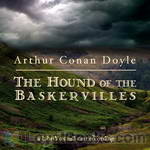 The Hound of the Baskervilles (dramatic reading)
The Hound of the Baskervilles (dramatic reading)
The Hound of the Baskervilles is the third of four crime novels by Sir Arthur Conan Doyle featuring the detective Sherlock Holmes. Originally serialised in The Strand Magazine from August 1901 to April 1902, it is set largely on Dartmoor in Devon in England's West Country and tells the story of an attempted murder inspired by the legend of a fearsome, diabolical hound. | |
By: Sophocles (495-406 BC) | |
|---|---|
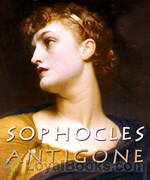 Antigone
Antigone
This is the final installment in Sophocles's Theban Plays, following Oedipus Rex and Oedipus at Colonus. Oedipus's daughter Antigone deliberately breaks the laws of Thebes when she buries her brother's body and is sentenced to death. She clashes with Creon, the King of Thebes, over what constitutes justice and morality: the laws of the state or the laws of the individual. | |
 Electra
Electra
Sophocles' play dramatizes the aftermath of Agamemnon's murder by his wife Clytemnestra and her lover Aegisthus. His daughter Electra is hungry for revenge and longs for the return of her brother Orestes to help her achieve her ends. | |
By: Stanley Houghton (1881-1913) | |
|---|---|
 Hindle Wakes (with accompanying essay)
Hindle Wakes (with accompanying essay)
Alan Jeffcote, son of Nat Hawthorn, Hindle's richest factory owner, meets Fanny Hawthorn, daughter of Nat's 'slasher' and oldest friend, in Blackpool and the two go off for what they believe to be secret fling in Llandudno. But after the death of Fanny's friend, Mary, in a pleasure boat accident at Blackpool the secret is revealed and the the two families are thrown into disarray. The leading light of the so-called Manchester School of realist dramatists, Stanley Houghton wrote Hindle Wakes in 1911 and it was a hit both in Mrs... | |
By: Susan Glaspell (1876-1948) | |
|---|---|
 Trifles
Trifles
On the surface, this short play is a slice-of-life story about a murder investigation in the rural United States. However, it is also a story about the relationships between men and women, husbands and wives, and the often-overlooked "trifles" which can say so much about a person's life. | |
By: Thomas Love Peacock (1785-1866) | |
|---|---|
 Headlong Hall
Headlong Hall
Headlong Hall is the first novel by Thomas Love Peacock, published in 1815 (dated 1816). As in his later novel Crotchet Castle, Peacock assembles a group of eccentrics, each with a single monomaniacal obsession, and derives humor and social satire from their various interactions and conversations. The setting is the country estate of Squire Harry Headlong Ap-Rhaiader, Esq. in Wales. | |
By: Thomas Middleton (1580-1627) | |
|---|---|
 Women Beware Women
Women Beware Women
Thomas Middleton's masterful 17th century tragedy is packed with adultery, incest, intrigue, revenge, and inventive methods for murder. Leantio elopes with Bianca against her family's wishes and tries to hide her in the house he shares with his widowed mother. Yet the Duke sees Bianca at the window and is powerfully attracted to her, threatening Leantio's security. Livia, a wealthy widow, delights in intrigue, aiding the Duke to satisfy his desires with Bianca, and bringing together her brother Hippolito with her niece Isabella, despite their familial relationship... | |
By: Thomas Middleton and Thomas Dekker | |
|---|---|
 The Roaring Girl
The Roaring Girl
The Roaring Girl is a rip-roaring Jacobean comedy co-written by Thomas Middleton and Thomas Dekker and first published in 1611. The play is a fictionalized dramatization of the life of Mary Frith, known as "Moll Cutpurse", a woman who had gained a reputation as a virago in the early 17th century. (The term "roaring girl" was adapted from the slang term "roaring boy", which was applied to a young man who caroused publicly, brawled, and committed petty crimes.) The play combines the exploits of the cross-dressed Moll with the amorous adventures of a trio of merchants' wives, and the forbidden romance between Sebastian Wengrave and Mary Fitzallard. | |
By: Titus Maccius Plautus (254 BCE-184 BCE) | |
|---|---|
 Captives
Captives
Though with some of Plautus's usual comic elements , this is a rare serious play by him looking at slavery and prisoners of war among the various Greek states. From the Prologue: "Really, it will be worth your while to give your attention to this play.... Don't you be afraid because I've said that there's war between the Aetolians and the Eleans. There , at a distance, beyond the scenes, the battles will be fought. For this were almost impossible for a Comic establishment, that we should at a moment attempt to be acting tragedy... | |
By: Unknown | |
|---|---|
 Everyman
Everyman
The Somonyng of Everyman (The Summoning of Everyman), usually referred to simply as Everyman, is a late 15th-century English morality play. Like John Bunyan's novel Pilgrim's Progress, Everyman examines the question of Christian salvation by use of allegorical characters, and what Man must do to attain it. The premise is that the good and evil deeds of one's life will be tallied by God after death, as in a ledger book. The play is the allegorical accounting of the life of Everyman, who represents all mankind... | |
 The Drama: A Quarterly Review
The Drama: A Quarterly Review
This is a collection of theatrical essays from the American quarterly The Drama, including six non-fiction works -- 3 profiles: Schnitzler, Andreyev, and O'Neill, and 3 articles: Characterization vs Situation, The Actor in England, & The Evolution of The Actor. | |
By: Upton Sinclair (1878-1968) | |
|---|---|
 The Machine
The Machine
Upton Sinclair is best known for his novel The Jungle, an expose of the meatpacking industry. He was also a playwright whose works for the stage reflected the same progressive viewpoints found in his other writing. In The Machine, published as part of Sinclair's 1912 collection Plays of Protest, Socialist activists show a rich man's daughter the truth about the society in which she has been raised. | |
 Naturewoman
Naturewoman
The Mastersons, a wealthy Bostonian family, await the arrival of their cousin Anna in the wake of her grandfather's death. Though born in Boston, Anna, who prefers the name Oceana, spent most of her life on a tropical island in the Pacific with her father. A free spirit, her practices and values surrounding proper dress, romance, and entertainment clash with those of her conservative relatives. What will happen as patience and tolerance wear thin for both parties when alluring Oceana catches the... | |
By: Various | |
|---|---|
 One-Act Play Collection 003
One-Act Play Collection 003
This collection of ten one-act dramas features plays by Edward Goodman, Alice Gerstenberg, Arnold Bennett, John Galsworthy, Anton Chekhov, Frank Wedekind, Moliere, Theresa Helburn, John Kendrick Bangs, and Harold Brighouse. | |
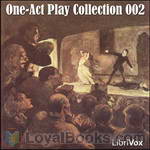 One-Act Play Collection 002
One-Act Play Collection 002
This collection of eight one-act dramas features plays by Eugene O'Neill, George Bernard Shaw, John Galsworthy, Susan Glaspell, William Dean Howells and John Millington Synge. It also includes a dramatic reading of a short story by Frank Richard Stockton. | |
 One Act Play Collection 004
One Act Play Collection 004
This collection of twelve one-act dramas features plays by James Allen, John Kendrick Bangs, Gordon Bottomley, Charles Dickens, Lord Dunsany, Susan Glaspell, George Bernard Shaw, August Strindberg, Marion Craig Wentworth, and William Butler Yeats. The plays were coordinated by Elizabeth Barr, Margaret Espaillat, Amanda Friday, Elizabeth Klett, Kristingj, David Lawrence, Algy Pug, Todd, and Chuck Williamson. | |
 Nō Plays of Japan
Nō Plays of Japan
Noh , or Nogaku—derived from the Sino-Japanese word for "skill" or "talent"—is a major form of classical Japanese musical drama that has been performed since the 14th century. Developed by Kan'ami and his son Zeami, it is the oldest major theatre art still regularly performed today. Traditionally, a Noh program includes five Noh plays with comedic kyōgen plays in between, even though an abbreviated program of two Noh plays and one kyōgen piece has become common in Noh presentations today. An okina play may be presented in the very beginning, especially during New Year celebrations, holidays, and other special occasions... | |
 One-Act Play Collection 009
One-Act Play Collection 009
Ninth volume of one-act plays in the public domain read by a variety of members. A Dramatic Evening Narrator: April6090 Mr Thaddeus Perkins: Jeff Moon Mr Edward Bradley: Tomas Peter Mr Robert Yardsley: Tom Penn John Barlow: Mike Harris Mrs Thaddeus Perkins: TriciaG Mrs Edward Bradley: Sonia Jennie: Leanne Yau The Fatal Message Narrator: Linette Geisel Mr Thaddeus Perkins: Jeff Moon Mr Edward Bradley: Tomas Peter Mr Robert Yardsley: Tom Penn John Barlow: Mike... | |
 One-Act Play Collection 010
One-Act Play Collection 010
Tenth volume of one-act plays in the public domain read by a variety of members. Mosada Narrator: Availle Mosada: Sonia Ebremar: Tomas Peter Cola: Charlotte Duckett First Inquisitor: Anusha Iyer Second Inquisitor: Michele Eaton First Monk: KHand Second Monk: Chuck Williamson The Belles of Canterbury Narrator: Kalynda Freshman:Twinkle Sophomore: DrPGould Junior: TJ Burns Senior:Leanne Yau Wife of Bath: Sonia Prioress: KHand First Nun: Michele Eaton Second Nun: Tomas Peter Emily: Eva Davis Hippolyta:... | |
 One-Act Play Collection 011
One-Act Play Collection 011
Here are 10 one act plays offered by various groups of readers. From Ancient India to the Far Future, from the palaces of royalty to the servants hall, from comedy to tragedy, from deeply philosophical to farcically entertaining. Enjoy! Chitra by Rabindranath Tagore : Narrator: Foon Madana: Tomas Peter Vasanta: alanmapstone Chitra: Availle Arjuna: ToddHW Villagers: Sonia The Vampire Cat by Gerard van Etten : Narrator: Ian King Prince Hizen: Tomas Peter Buzen: ToddHW Ruiten: TJ Burns Ito Soda: Chuck... | |
 One-Act Play Collection 013
One-Act Play Collection 013
Here, in our 13th collection, are 10 One Act Plays for your enjoyment. They range from tales of ancient Greek sailors to a story about early 1900 moonshiners; many short gems to make you laugh, cry, think, or all three. NOTE: Although the plays here were all published before 1923 and hence are in the Public Domain in the U.S., Alice Gerstenberg, Elizabeth Lay and Hugh Heffner died in 1972, 1989, and 1985 respectively and their plays may not yet be in the Public Domain in some countries. - Summary by ToddHW Cast list: 1... | |
 One-Act Play Collection 014
One-Act Play Collection 014
Here, in our 14th collection, are 10 One Act Plays for your enjoyment. They range from the farm to the courtroom to the palace throne room; from the time of suffragettes to the far distant future of 1999; and two of them have the word "sweet" in their titles. Short gems to make you laugh, cry, think, or all three. NOTE: Although the plays here were all published before 1923 and hence are in the Public Domain in the U.S., Floyd Dell died in 1969 and that play may not yet be in the Public Domain in some countries... | |
 One-Act Play Collection 015
One-Act Play Collection 015
Here, in our 15th collection, are 10 One Act Plays for your enjoyment. They range from the mid-1600s to the early 1900s, from outright farce to bittersweet relationships, all short gems to make you laugh, cry, think, or all three. NOTE: Although the plays here were all published before 1923 and hence are in the Public Domain in the U.S., Moeller died in 1958 while the death dates for Postgate, Crandall, and Bornstead are unknown. Their plays may not yet be in the Public Domain in some countries.... | |
 One-Act Play Collection 016
One-Act Play Collection 016
Here, in our 16th collection, are 10 One Act Plays for your enjoyment. They range from Moliere to Jane Austen, from Comedy to Tragedy, all in short gems to make you laugh, cry, think, or all three. - Summary by ToddHW Cast lists: 1. Hyacinth Halvey by Lady Augusta Gregory. BC for this play is wib66 Stage Directions: Joanna Michal Hoyt Hyacinth Halvey: ToddHW Fardy Farrel: Krista Zaleski Mrs Delane: Michele Eaton James Quirke: Greg Giordano Sergeant Carden: James R. Hedrick Miss Joyce: gracenfisk224 2... | |
By: W. S. Gilbert (1836-1911) | |
|---|---|
 Sweethearts
Sweethearts
Sweethearts is a comic play billed as a "dramatic contrast" in two acts by W. S. Gilbert. The play tells a sentimental and ironic story of the differing recollections of a man and a woman about their last meeting together before being separated and reunited after 30 years. | |
By: W. Somerset Maugham (1874-1965) | |
|---|---|
 Lady Frederick, a Comedy in Three Acts
Lady Frederick, a Comedy in Three Acts
Lady Frederick is a comedy by the British writer W. Somerset Maugham, written early in his career. The play was first seen in London in 1907, and was very successful, running for 422 performances. The title role was played by Ethel Irving. In New York it was first performed in 1908, with Lady Frederick played by Ethel Barrymore, who reprised her role in the play's film adaptation, The Divorcee. In the play, Lady Frederick is an Irish widow, seriously in debt; she must deal with suitors who have various motives for proposing marriage, and with the man with whom she once had an affair... | |
By: Walter De la Mare (1873-1956) | |
|---|---|
 Crossings: A Fairy Play
Crossings: A Fairy Play
Under the terms of a will, the Wildersham children have to relocate from the family house in the city to "Crossings" in the country, and to spend the first fortnight alone fending for themselves in the house. The children encounter interesting country neighbors, including ghosts and fairies. Or are they dreaming? Walter De La Mare was a poet, and we have a number of his poems available at. This is his only play: "Crossings was produced for the first time in 1919, at the Wick School, Hove, to celebrate the coming of Peace... | |
By: Walter W. Ellis (1874-1956) | |
|---|---|
 Little Bit of Fluff
Little Bit of Fluff
According to the website www.stagebeauty.net, this is the 5th longest running play ever, with over 1200 original performances. Like Charley's Aunt , this also is a farce. An insurance investigator, a possible fraudulent injury claim, a lost necklace, an aged aunt with a more than passing resemblance to someone else, and of course, that Little Bit of Fluff - all conspire to cause great confusion. - Summary by ToddHW Cast list: JOHN AYERS: Tomas Peter BERTRAM TULLY, His friend: Campbell Schelp NIXON TRIPPETT, Inspector of Claims for the Motor ’Bus Company: Chuck Williamson DR... | |
By: William Congreve (1670 -1729) | |
|---|---|
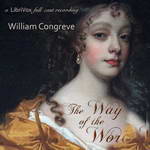 The Way of the World
The Way of the World
The Way of the World is a play written by British playwright William Congreve. It premiered in 1700 in the theatre in Lincoln's Inn Fields in London. It is widely regarded as being one of the best Restoration comedies written and is still performed sporadically to this day.The play is based around the two lovers Mirabell and Millamant (originally famously played by John Verbruggen and Anne Bracegirdle). In order for the two to get married and receive Millamant's full dowry, Mirabell must receive the blessing of Millamant's aunt, Lady Wishfort... | |
By: William Shakespeare (1564-1616) | |
|---|---|
 Romeo and Juliet
Romeo and Juliet
William Shakespeare’s most well-known play is more than most people realize. While it is the story of star-crossed lovers, Romeo and Juliet, it is also the story of two families in the middle of a bitter feud. Many people avoid the story because they believe it will be too difficult to read, but this is not true at all. Within a few paragraphs, the play captures your imagination and attention. Juliet is 13 years old and is love with the son of her father’s enemy. Her father has promised that she will marry another boy when it is time, but she refuses to accept the suit... | |
 King Lear
King Lear
Considered to be one of Shakespeare's greatest plays, the tragedy King Lear portrays some of the darkest aspects of human nature that can be found in literature. The helplessness of the human condition, as we fall prey to our destinies, the injustice and random cruelties practiced by people, suffering and humiliation, the lust for power and the greed for wealth are all depicted in this magnificent play. And through it all, runs the golden thread of love and sacrifice, daughterly affection and the true nature of our relationship with our parents... | |
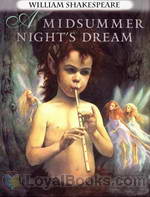 A Midsummer Night's Dream
A Midsummer Night's Dream
Summer nights, romance, music, comedy, pairs of lovers who have yet to confess their feelings to each other, comedy and more than a touch of magic are all woven into one of Shakespeare's most delightful and ethereal creations – A Midsummer Night's Dream. The plot is as light and enchanting as the settings themselves. The Duke of Athens is busy with preparations for his forthcoming wedding to Hippolyta the Amazonian Queen. In the midst of this, Egeus, an Athenian aristocrat marches in, flanked by his lovely daughter Hermia and her two suitors, Lysander and Demetrius... | |
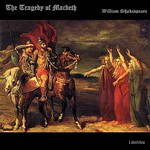 The Tragedy of Macbeth
The Tragedy of Macbeth
Right from its famous opening scene which begins, “Thunder and lightning. Enter Three Witches” The Tragedy of Macbeth by William Shakespeare holds the reader fast in a stirring, monumental experience that plumbs the depths of the human soul and reveals its most morbid secrets. The play is set in medieval Scotland. It is based partly on historical facts and recounts the tale of Macbeth, who was a king in Scotland, according to The Holinshead Chronicles, a book published in 1577. This book was extensively used by contemporary playwrights like Shakespeare and Marlowe as inspiration for their themes, characters and events... | |
 As You Like It
As You Like It
In a tiny French dukedom, a younger brother usurps his elder brother's throne. Duke Senior is banished to the Forest of Arden along with his faithful retainers, leaving his lovely daughter Rosalind behind to serve as a companion for the usurper's daughter, Celia. However, the outspoken Rosalind soon earns her uncle's wrath and is also condemned to exile. The two cousins decide to flee together and join Duke Senior in the forest. Meanwhile, a young nobleman, Orlando is thrown out of his home by his cruel older brother Oliver... | |
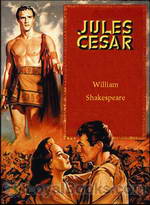 Julius Caesar
Julius Caesar
Though it's titled The Tragedy of Julius Caesar, the man himself appears only in five scenes in the entire play! However, such is his impact on the events that surrounded him that he still remains the central figure in this psychological drama that combines politics, honor, assassination, betrayal, the lust for power, patriotism and friendship. Set in 44 BC in ancient Rome, it is one of William Shakespeare's early Tragedies. First thought to have been performed in September 1599, William Shakespeare's original text or script have long vanished... | |
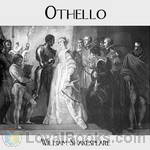 Othello
Othello
In seventeenth century Venice, a wealthy and debauched man discovers that the woman he is infatuated with is secretly married to a Moorish general in the Venetian army. He shares his grief and rage with a lowly ensign in the army who also has reason to hate the general for promoting a younger man above him. The villainous ensign now plots to destroy the noble general in a diabolical scheme of jealousy, paranoia and murder, set against the backdrop of the bloody Turkish-Venetian wars. This timeless tale, Othello The Moor of Venice was one of the ten famous tragedies that William Shakespeare wrote... | |
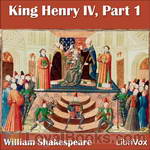 King Henry IV
King Henry IV
King Henry IV, Part 1 is the second of Shakespeare’s eight Wars of the Roses history plays, with events following those of King Richard II. As the play opens, King Henry IV (formerly Henry Bolingbroke) and Henry Percy (Hotspur) argue over the disposition of prisoners from the Battle of Holmedon. The King’s attitude toward Mortimer and the Percy family prompts them to plot rebellion. In the meantime, his son Prince Hal is living the low life in the company of Sir John Falstaff. As the time of battle nears, Prince Hal joins his father and is given a high command... | |
 The Merchant of Venice
The Merchant of Venice
William Shakespeare's The Merchant of Venice was probably written between 1596 and 1598, and was printed with the comedies in the First Folio of 1623. Bassanio, an impoverished gentleman, uses the credit of his friend, the merchant Antonio, to borrow money from a wealthy Jew, Shylock. Antonio pledges to pay Shylock a pound of flesh if he defaults on the loan, which Bassanio will use to woo a rich heiress, Portia. A subplot concerns the elopement of Shylock's daughter Jessica with a Christian, Bassanio's friend Lorenzo... | |
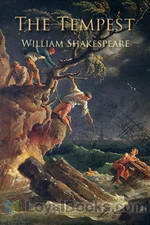 The Tempest
The Tempest
Banished from his own lands by a usurping brother, Prospero and his daughter Miranda have been living on a deserted island for years, until fate brings the brother within the range of Prospero's powers. Will he seek revenge, or reconcilement? | |
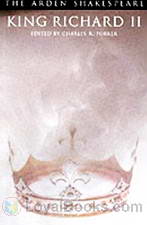 King Richard II
King Richard II
The Tragedy of King Richard II, by William Shakespeare, is the first of the history series that continues with Parts 1 and 2 of King Henry IV and with The Life of King Henry V. At the beginning of the play, Richard II banishes his cousin Henry Bolingbroke from England. Bolingbroke later returns with an army and the support of some of the nobility, and he deposes Richard. Richard is separated from his beloved Queen, imprisoned, and later murdered. By the end of the play, Bolingbroke has been crowned King Henry IV... | |
 Much Ado About Nothing
Much Ado About Nothing
Written around the middle of his career, Much Ado About Nothing is one of Shakespeare's great festive comedies. The men are back from the war, and everyone is ready for romance. The dashing young Claudio falls for Hero, the daughter of Leonato, governor of Messina, and his friend Don Pedro helps him secure her affection. These youthful lovers are contrasted with the more experienced (and more cynical) Benedick and Beatrice, who have to be tricked into falling in love. Don Pedro's bastard brother, Don John, provides the intrigue, and the dimwitted constable Dogberry provides the laughs. | |
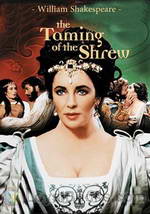 The Taming of the Shrew
The Taming of the Shrew
The Taming of the Shrew is one of Shakespeare's earliest comedies, and was inspired by classical Roman comedy and the Italian commedia dell'arte. Baptista Minola, a rich gentleman of Padua, has two daughters: Katherina, renowned for her sharp tongue, and Bianca, who is sought after by multiple suitors. Baptista decides that Bianca cannot marry until her elder sister finds a husband. Enter Petruchio, who has come to "wive it wealthily in Padua," and who is convinced by Bianca's suitors to woo Katherina. The play ultimately poses the question of who is the bigger shrew: Kate or Petruchio. The subplot involves the subterfuge employed by Lucentio to woo the lovely Bianca. | |
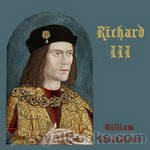 Richard III
Richard III
Richard III is an early history play probably written and performed around 1592-93. It is the culmination of Shakespeare's earlier three plays about Henry VI, and chronicles the bloody career of Richard, Duke of Gloucester. As the play opens, the Wars of the Roses are over, King Edward IV (Richard's brother) is on the throne, and all is ostensibly well. The problem? Richard wants to be king - and he'll stop at nothing to realize his ambition. | |
 All's Well That Ends Well
All's Well That Ends Well
Despite its optimistic title, Shakespeare's All's Well That Ends Well has often been considered a "problem play." Ostensibly a comedy, the play also has fairy tale elements, as it focuses on Helena, a virtuous orphan, who loves Bertram, the haughty son of her protectress, the Countess of Rousillon. When Bertram, desperate for adventure, leaves Rousillon to serve in the King's army, Helena pursues him. | |
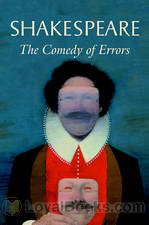 The Comedy of Errors
The Comedy of Errors
The Comedy of Errors is one of William Shakespeare's earliest plays, believed to have been written between 1592 and 1594. It is his shortest and one of his most farcical comedies, with a major part of the humour coming from slapstick and mistaken identity, in addition to puns and word play. The Comedy of Errors tells the story of two sets of identical twins that were accidentally separated at birth. Antipholus of Syracuse and his servant, Dromio of Syracuse, arrive in Ephesus, which turns out to be the home of their twin brothers, Antipholus of Ephesus and his servant, Dromio of Ephesus... | |
 Henry V
Henry V
After the turmoil and uncertainty of Henry IV a new era appears to dawn for England with the accession of the eponymous Henry V. In this sunny pageant, the Chorus guides us along Henry's glittering carpet ride of success as the new king completes his transformation from rebellious wastrel to a truly regal potentate. Of course, there is an underlying feeling that the good times won't last, and this is all the more reason to enjoy the Indian summer before the protracted and bitter fall of the house of Lancaster. | |
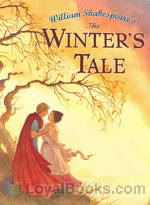 The Winter's Tale
The Winter's Tale
Mad with jealousy, King Leontes of Sicilia orders his best friend Polixenes killed, his child abandoned, and his wife put on trial for adultery. Sixteen years later, Perdita, raised as a shepherd's daughter, falls in love with Polixenes's royal son and returns to her father's kingdom. | |
 Measure For Measure
Measure For Measure
Generally considered one of Shakespeare's problem plays, Measure for Measure examines the ideas of sin and justice. Duke Vincentio turns Vienna's rule over to the corrupt Angelo, who sentences Claudio to death for having impregnated a woman before marriage. His sister Isabella, a novice nun, pleads for her brother's life, only to be told that he will be spared if she agrees to relinquish her virginity to Angelo. | |
 Love's Labour's Lost
Love's Labour's Lost
Love's Labour's Lost is an early comedy by William Shakespeare. Ferdinand, the King of Navarre, and his three friends take a vow of study and seclusion for three years, during which they are forbidden to see or speak to women. Their vows are immediately tested by the arrival of the Pricess of France and her three ladies to the King's court. | |
 Titus Andronicus
Titus Andronicus
Titus Andronicus may be Shakespeare's earliest tragedy; it is believed to have been written in the early 1590s. It depicts a Roman general who is engaged in a cycle of revenge with his enemy Tamora, the Queen of the Goths. The play is by far Shakespeare's bloodiest work. It lost popularity during the Victorian era because of its gore, and it has only recently seen its fortunes revive. | |
 Antony and Cleopatra
Antony and Cleopatra
Antony and Cleopatra is a tragedy by William Shakespeare, believed to have been written sometime between 1603 and 1607. It was first printed in the First Folio of 1623. The plot is based on Thomas North's translation of Plutarch's Life of Marcus Antonius and follows the relationship between Cleopatra and Mark Antony from the time of the Parthian War to Cleopatra's suicide. The major antagonist is Octavius Caesar, one of Antony's fellow triumviri and the future first emperor of Rome. The tragedy is a Roman play characterized by swift, panoramic shifts in geographical locations and in registers, alternating between sensual, imaginative Alexandria and the more pragmatic, austere Rome. | |
 Henry VI
Henry VI
Henry VI, Part 1 is a history play by William Shakespeare, believed to have been written in 1591, and set during the lifetime of King Henry VI of England. Whereas 2 Henry VI deals with the King's inability to quell the bickering of his nobles, and the inevitability of armed conflict, and 3 Henry VI deals with the horrors of that conflict, 1 Henry VI deals with the loss of England's French territories and the political machinations leading up to the Wars of the Roses, as the English political system is torn apart by personal squabbles and petty jealousy. | |
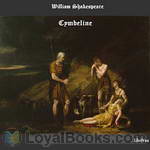 Cymbeline
Cymbeline
Cymbeline is one of Shakespeare's late romances, which (like The Tempest and The Winter's Tale) combines comedy and tragedy. Imogen, the daughter of King Cymbeline of Britain, angers her father when she marries Posthumus, a worthy but penniless gentleman. The King banishes Posthumus, who goes to Rome, where he falls prey to the machinations of Iachimo, who tries to convince him that Imogen will be unfaithful. Meanwhile, the Queen (Imogen's stepmother) plots against her stepdaughter by trying to plan a match between Imogen and her worthless son Cloten. | |
 The Two Gentlemen of Verona
The Two Gentlemen of Verona
The Two Gentlemen of Verona is the earliest comedy written by Shakespeare (and possibly his first play), probably written around 1590-91. It focuses on two friends, Valentine and Proteus, whose friendship is disrupted by their mutual passion for the lovely Silvia. Proteus jilts Julia in order to pursue Silvia; she responds by enlisting the help of her maid Lucetta to dress as a boy and go after Proteus. The play also includes some wonderfully comic supporting characters, particularly Launce and his scene-stealing dog Crab. | |
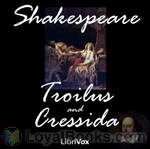 Troilus and Cressida
Troilus and Cressida
Troilus and Cressida is Shakespeare's "problem" play about the Trojan War. As the opening Chorus tells us, the play "begins in the middle" of the epic conflict, and counterpoints the drama of battle with the romance of the title characters. Just as Agamemnon and his Greek forces (particularly the smooth-tongued Ulysses) attempt to woo the invincible Achilles to resume fighting on their side, the Trojan go-between Pandarus tries to bring together Troilus, a son of King Priam, with his niece, the lovely Cressida. | |
 Henry VIII
Henry VIII
This is Shakespeare's dutiful tribute to one of the most imposing and terrifying rulers in European history. The kingdom trembles as the giant monarch storms through his midlife crisis, disposing of the faithful Katharine of Aragon and starting a new life and, the king hopes, a line of succession with the captivating young Anne Bullen. Unlike his predecessors, Henry has no doubt about the security of his tenure on the throne, and dominates the royal court with absolute authority. The extent of the King's power is graphically illustrated by the fate of the Duke of Buckingham, who goes calmly to execution while deploring, not the unjust despotism of the king... | |